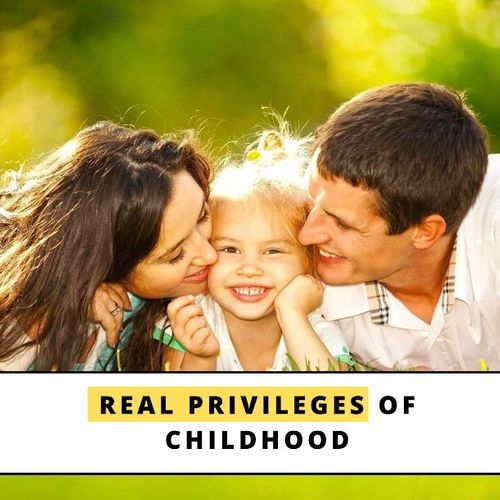The REAL privileges of childhood
Aug 24, 2022 · 2 mins read
0
Share

It is not surprising for us to associate privileged childhoods with images of fancy swimming pools, foreign holidays, and lavish presents. After all, the word “privilege” is almost always and emphatically associated with money.
Save
Share
However, the number of breakdowns and mental illnesses gnawing at the upper middle classes should be a clear indicator to us that money alone cannot be the hallmark of ‘privilege’ in the truest sense.
Save
Share
True privilege is an emotional phenomenon. It should always be closely tied to the privilege of receiving love, which has nothing to do with access to stylised drinks or fancy bathroom tiles.
Save
Share
The privilege of received love in childhood demands time and personal effort on the part of the giver. To put one’s needs aside to enter into your child’s imaginative world, listen to their fears or simply be sensitive enough to understand what they cannot explain takes work.
Save
Share
Access to a loving parent and family is a privilege. Emotional privilege in childhood has other forms too, the central being the feeling that we are loved, simply by the virtue of our existence rather than because of our achievements.
Save
Share
Other forms of privilege in childhood include: (a) feelings of emotional security and compassion, (b) being taught the values of compassion for others, and (c) good humor and feelings of playfulness.
Save
Share
Another privilege is when parents successfully shield the child from the agony of adulthood. This has 2 forms: to shield the child from the troubles of one’s own miseries as an adult; and to shield them from the miseries of growing up without being overly protected.
Save
Share
When a parent is overprotective, the child’s natural independence is taken as a personal betrayal. The other extreme leads to the child having insecure relationships in which they become the caretaker or develop avoidant/anxious attachment styles.
Save
Share
Emotional privilege in childhood can thus be measured by the extent to which one grows into an emotionally independent and healthy adult - one who is comfortable expressing their needs and can fulfill the needs of others.
Save
Share
Bottom line: the reason why emotional privileges go unnoticed is that society counts monetary wealth as the only wealth with any value. By putting the onus on emotional love and security, we would be able to set the right standards for measuring privilege in the truest sense.
Save
Share
0